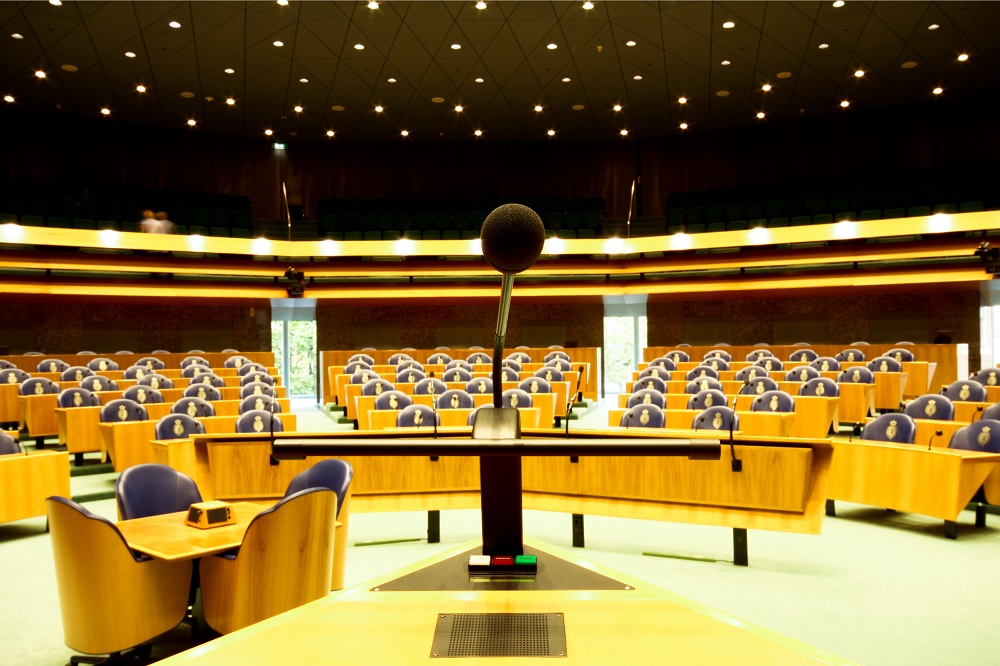Democratic Deficit in The Kingdom of The Netherlands

Introduction.
Curacao and Dependencies comprising of Curacao, Aruba and Bonaire together with St. Eustatius and Dependencies comprising of St. Eustatius, St. Maarten and Saba were Dutch colonies from 1815 until 1828 and then from 1828 until 1845. For economic reason the two sets of colonies were merged with Suriname between 1828 and 1845 to form a single West Indies colony with its headquarter in Paramaribo. In 1845 the Dutch reverted back to the term Curacao and Dependencies, now also including St. Eustatius, St. Maarten and Saba. This system remained in place until 1936. A few years later, in 1951 the colony Curacao and Dependencies became the Netherlands Antilles. Limited suffrage, voting right, was enacted, however the Netherlands Antilles, with headquarters on Curacao, continued to be governed as a colony.
During World War II Queen Wilhelmina gave a speech from London where she promised to give more autonomy to the overseas territories. This speech was primarily intended to appease Indonesia that seceded from the Netherlands on August 17, 1945.
On December 15, 1954 the Charter of the Kingdom was enacted and The Netherlands Antilles, Suriname and the Netherlands became “equal” partners in the Kingdom. In November 1975 Suriname became an independent Republic. Aruba gained its “Status Aparte “within the Kingdom and left the Netherlands Antilles in April 1986. On October 10 of 2010 the so called 10-10-10, the Netherlands Antilles was dissolved making Curacao and St. Maarten countries within the Kingdom while Bonaire, St. Eustatius and Saba , the so called BES islands, became special municipalities of the Netherlands.
The Kingdom of the Netherlands
The Kingdom of the Netherlands consists since October 10, 2010 (10-10-10) of 4 countries namely the Netherlands in the Continent of Europe with an estimated population of 17 million, and Aruba, Curacao and St. Maarten in the Caribbean with an estimated population of 300,000
The Kingdom has authority over the so called Kingdom matters. All other matters fall under the authority of the separate countries. The countries are autonomous in dealing with their internal affairs.
Kingdom matters, as established in article 3 of the Charter of the Kingdom of the Netherlands, (“Statuut”) are:
- The enforcement of the independency and protection of the Kingdom;
- Foreign affairs; dealing with foreign States and Governments;
- Dutch citizenship; obtaining the Dutch nationality;
- The Knighthood regulation (the decorations ceremony by the Governor to deserving citizens),
as well as the flag and the coat of arms of the Kingdom; - The nationality regulation of ships and the requirements for the safety and the navigation of vessels, that carry the flag of the Kingdom with the exception of sailing ships;
- Supervision of the general regulations concerning admission and expulsion of Dutch citizens: European Dutch citizen are admitted by right, thus are legally admitted, but can be expelled based on e.g. if considered a high risk for the country.
- Stipulation of conditions for admission or expulsion of foreigners; e.g. immigration and the residents ‘permits etc. ;
- The Extradition; regulation concerning sending especially foreigners back to their country who have committed criminal acts abroad.
- Other topics can be established as Kingdom Affairs by mutual consultation based on article 38 of the Charter, e.g. National Justice and Financial matters.
In 1997 Dr. Hirsh Balin, member in the First Chamber of the Netherlands at that time, pleaded for instituting a Kingdom Parliament as the Dutch Second Chamber presently functions as the Kingdom Parliament. This plea originated from the need of Aruba and the former Netherland Antilles to have more democratic control/input on Kingdom matters. To date this has not materialized.
The former Netherlands Antilles and Aruba were of the opinion that they had very little influence in Kingdom matters, and as such their viewpoint could be easily rejected or dismissed. The Dutch Parliament is de facto the Kingdom Parliament. The Parliaments of the Caribbean countries have repeatedly expressed the opinion that there is a question of democratic deficit on Kingdom level.
In 2001 the Council of State defined Democratic Deficit within the Kingdom as follows: the lack of (complete) equivalence in democratic representation of the population in decision making on Kingdom level.
The constellation of the Kingdom Council of Ministers consists of the 16 Dutch Ministers, 8 Junior Ministers of the Netherlands and one Minister Plenipotentiary each for Aruba, Curacao and St. Maarten. The Prime Minister, the Minister of Defense, Minister of Foreign Affairs and the Minister of Kingdom Relations, representing Kingdom matters established in the Charter/Statuut, are considered Ministers of the Dutch Kingdom, as well as Ministers of the Netherlands. There is no or very little influence of the representatives of the people of the Caribbean countries in the decision making on Kingdom level, as they are outnumbered in the Kingdom Council of Ministers.
In June 2008 “The Parliamentary Consultation on Kingdom Relations”, consisting of representatives of the Parliaments of the 3 countries in the Kingdom (The Netherlands, the Netherlands Antilles, Aruba), installed an independent committee – “The Committee Democratic Deficit” – to report on the democratic legality of decision making in the Kingdom. The committee was to submit proposals regarding solutions to mitigate or, if possible, eradicate the democratic deficit without amending the Charter (Statuut).
On November 11, 2009, The Committee Democratic Deficit presented the report “Choosing the Kingdom” in which it gave an elaborate discourse on opinions about the democratic deficit. The report “Choosing the Kingdom” mentioned the following short comings of the democratic functioning within the Kingdom.
Short comings identified which are still prevalent today are:
- The very limited amount of Kingdom legislature.
- Modern time places new demands on the democratic decision making.
- The possibility of influencing Kingdom policy by Aruba, Curacao and St. Maarten is very limited.
- The influence of Aruba, Curacao and St. Maarten on the formation of ordinary Kingdom legislation is not being completely utilized.
- The procedural consequences when the required consensus is not obtained are unclear.
- There is more room for delegated regulation on Kingdom level than the legislator in the individual countries considers desirable.
- Citizens of Aruba, Curacao and St. Maarten often do not make use of their voting right for the Dutch Second Chamber. Citizens on the islands who are Dutch nationals can participate in the Second Chamber and the European Parliament elections by registering as a voter beforehand in The Hague and can pick up the ballot at the Dutch Representation Office.
Other shortcomings not mentioned in the report are:
- The absence of a directly chosen Kingdom Parliament with representatives of the people of the four (4 )countries of the Kingdom of the Netherlands.
- Lack of approachable multilingual information about the Kingdom (especially in English).
- The absence of a Court of Arbitration to solve mutual judicial conflicts or constitutional issues among the countries of the Kingdom.
The report suggested the following solutions that are still relevant today.
- Make public Parliamentary documents and other relevant information digitally available via your own parliamentary websites.
- Request the Kingdom Council of Ministers to publish a yearly strategic policy document that can be called ”The State of the Kingdom”.
- Intensify the Inter-Parliamentary Consultations. IPKO meetings are held twice a year. At the recent meeting held in The Hague, the Reconstruction of St. Maarten and the Conflict Regulation were discussed among other topics.
- Parliaments of the Caribbean countries of the Kingdom should make better use of the existing possibilities to influence legislation on Kingdom level. Based on the Charter, Parliamentarians can research a law proposal and write up a report prior to the public meeting in the Second and First Chamber. The Parliament of a country can also send a delegation to voice their objection during the debate in the Chamber. The delegation member has the right to amend and table motions. If a delegation member is against a proposal of law, he can request to postpone the voting until a next meeting.
- The Parliaments of the Caribbean countries of the Kingdom should each appoint a permanent liaison to the Second Chamber to follow relevant policy and legislation on behalf of the Parliaments of the countries. This liaison can be compared to the Minister Plenipotentiary in the Kingdom Ministry.
- Regulate the procedure, nature and topics of Kingdom consensus legislature in an “interinstitutional accord.” (meaning that the governments of the four countries agree to the explanation/ interpretation of the Charter of the Kingdom of the Netherlands)
- The Kingdom government should use the same criteria to issue independent Kingdom general measures regulations as those issued by the Dutch government. The independent general Kingdom measure should be based on the execution or elaboration of a higher law, the principle of legality, which is not the case. Neither the Second Chamber nor the Parliaments of the Caribbean countries are involved in the legislative process concerning independent Kingdom general measures. A recent example of such an independent law is the Kingdom measure on Financial Supervision Curacao and St. Maarten (Cft)
Other possible solutions Kingdom regulation should be based on a
- Instituting a Kingdom Parliament with a representative and substantial representation of the Caribbean Kingdom countries.
- Multilingual publication of legal products in at least Dutch and English.
- The Representative Office of the Netherlands on the island should use the media more to inform the citizens of developments on Kingdom level that can impact them.
- Establishing a Constitutional Court of Arbitration to solve conflicts between the Kingdom partners.
Note that even though proportionality in regards to the number of the population of the different countries could play a role, the lack of equal representation for the four countries in the Kingdom is actually in contravention with the principle of equality as anchored in the fundamental rights of modern democracies.
Discussion/questions:
- Why do you think democratic deficit exists in the Kingdom of the Netherlands?
- Do you think that the lack of complete equivalence in democratic representation in the Kingdom is justified? If yes why, if no explain.
- Do you have any suggestions as to how to deal with the Democratic Deficit within the Dutch Kingdom?

























Message from the Moderator:
We have opened the comments section on this article to allow you the readers to post answers to the questions posed by The Legal Review Committee.
Comments will be highly moderated to allow only for a high level discussion on the questions posed and on the topics in general. No profanity, insulting or derogatory comments will be allowed. We encourage discussions and debates on the merits of the arguments posed. No posts or attacks of a personal nature nor any off-topic postings will be allowed.
Thank you for your kind cooperation.
The Publisher
StMaartenNews.com
PS: Click above on the category “Legal Reviews” to see all articles published by The Legal Review Committee.